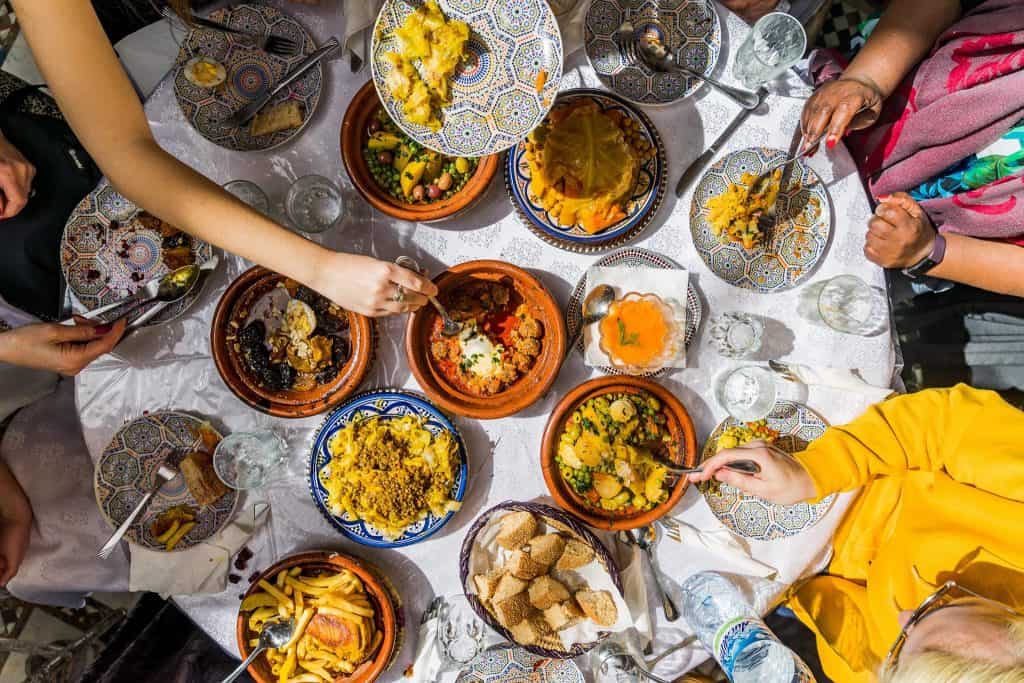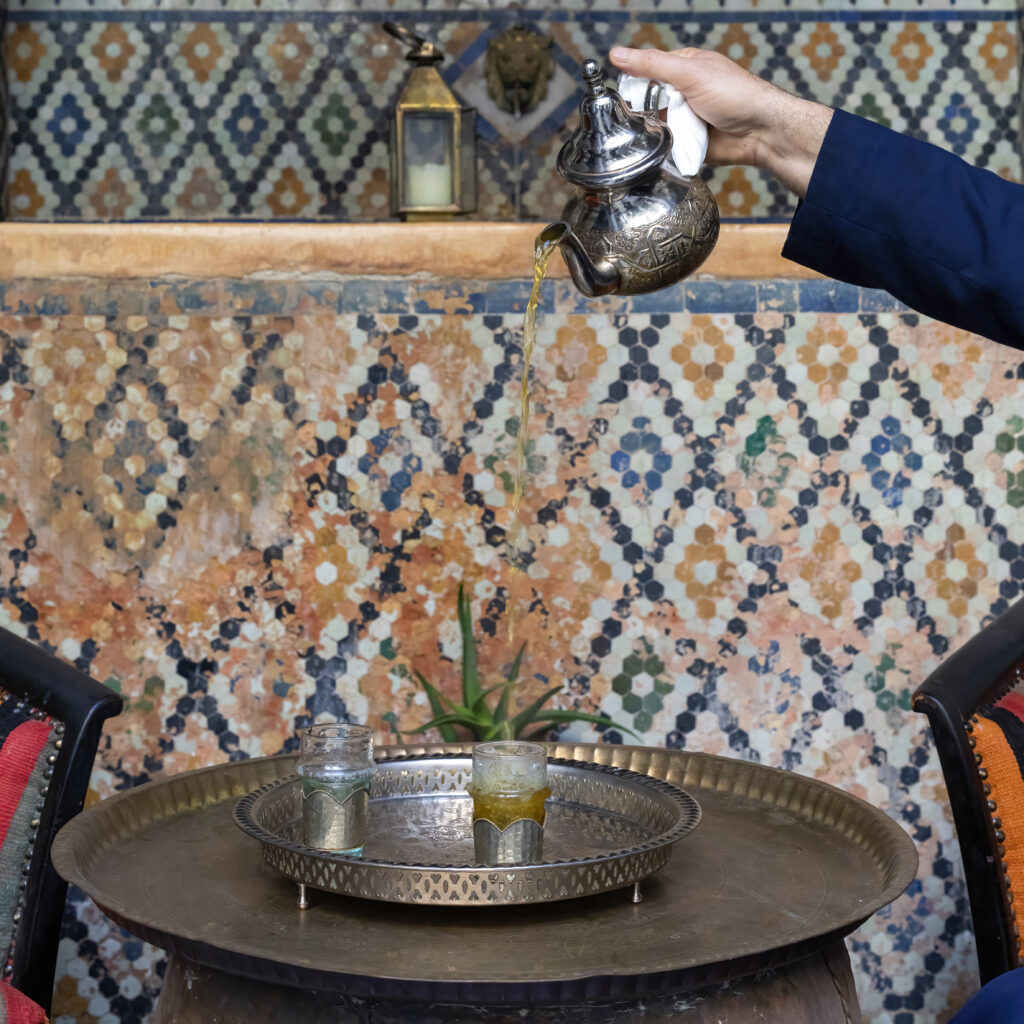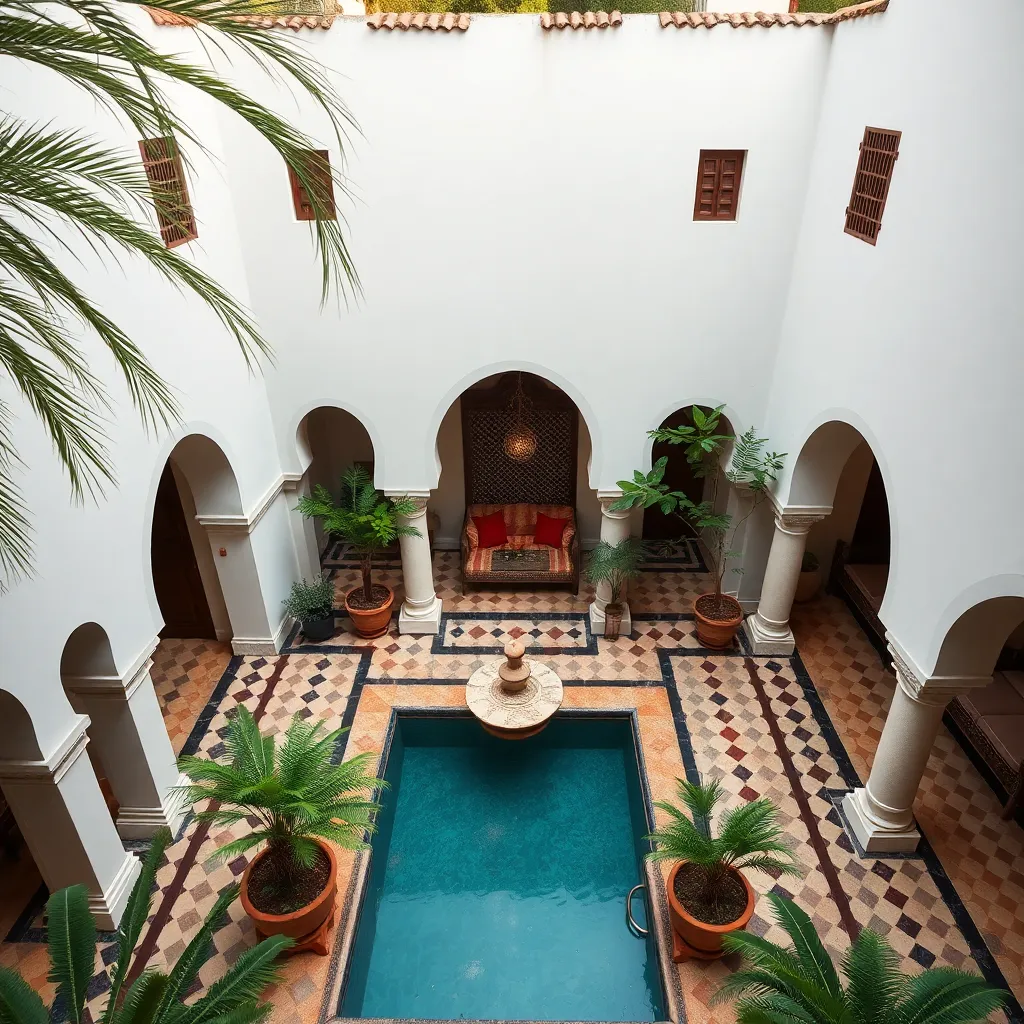
Moroccan hospitality is a defining feature of this enchanting country, renowned for its vibrant culture, rich history, and breathtaking landscapes that captivate travelers from around the globe. What truly distinguishes Morocco is its deep-rooted tradition of welcoming guests, which goes beyond simple service to embody the warmth of its people. From the lively streets of Marrakech to the tranquil Sahara Desert, the exquisite art of Moroccan hospitality shines through, celebrating generosity, kindness, and a profound respect for every visitor.
At the very heart of Moroccan hospitality lies an enduring philosophy: the guest is a blessing. This sentiment is more than just a saying; it is intricately woven into the fabric of Moroccan culture. Friends and strangers alike are welcomed with open arms, offered food and drink, and treated as family. This tradition is evocative of the famous Moroccan proverb, “The one who serves you tea is not your servant; he is your guest.” This quote encapsulates the essence of hospitality in Morocco—everyone plays a role in making others feel at home.
The Ritual of Tea

Inviting someone for tea is not merely an act of serving; it is an invitation into a space of connection, conversation, and shared stories. In a society that values relationships, the pattern of inviting guests to sip tea brings forth moments of laughter and intimacy, fostering a sense of unity.
Nowhere is this hospitality more vividly expressed than in the world-renowned ritual of Moroccan tea. The preparation of mint tea—a sweet infusion of green tea, fresh mint leaves, and sugar—is often both a social and ceremonial occasion. It is common for families to spend hours preparing and serving tea to visitors. The pouring of tea from a height, allowing it to aerate, is a performance in itself, symbolizing respect and care for those being served.
Culinary Delights of Moroccan Hospitality
One of the most delightful aspects of Moroccan hospitality is the emphasis on sharing food. Traditional Moroccan meals, such as tagine and couscous, are often served in communal dishes, encouraging guests to partake in the feast together. This communal dining experience fosters a sense of unity and togetherness, highlighting the importance of sharing in Moroccan hospitality. As guests gather around the table, stories and laughter flow freely, creating an atmosphere of warmth and joy. The act of sharing food transcends mere sustenance; it becomes a celebration of culture, tradition, and the bonds formed through shared experiences. In Morocco, hospitality is not just about providing a meal; it’s about creating a memorable experience that nourishes both the body and the soul.
A typical Moroccan meal starts with an array of salads, followed by a succulent main course. As mentioned above, the most well-known dish is tagine, a slow-cooked stew named after the conical pot it is prepared in. Each region of Morocco boasts its own specialty, ensuring a delightful culinary journey through the country.
Dessert is no less spectacular, featuring sweet pastries like baklava and fresh fruit drizzled with honey. The hospitality doesn’t end with the meal; guests are frequently offered an array of sweets along with more tea, reaffirming the Moroccan commitment to ensuring everyone feels welcome and satisfied.
Architectural Enclaves of Moroccan hospitality

Moroccan hospitality extends to the very design of homes and accommodations. Traditional Moroccan houses, or riads, are architectural marvels built around an inner courtyard, creating a serene oasis. The design not only prioritizes privacy but also fosters an inviting atmosphere where guests can relax away from the chaos of the outside world.
Staying in a riad is an experience in itself. The intricate tilework, lush gardens, and tranquil fountains create an ambiance of luxury and comfort. As guests enter, they are greeted with warm smiles and the comforting aroma of essential oils wafting through the air. The staff often takes the time to understand their guests’ preferences, ensuring personalized attention throughout their stay.
Connection and Community
In Moroccan culture, hospitality is not a transaction; it is a way of life rooted in community values. Neighbors often stop by unannounced for a chat or a meal, reinforcing the notion that everyone is part of a larger family. This sense of belonging creates an environment in which everyone feels cherished and valued.
Festivals and celebrations are pivotal occasions where hospitality flourishes. During Ramadan, for example, family and friends gather to break their fast together, highlighting the significance of collective experiences. The spirit of generosity is palpable as people offer food to the less fortunate, reinforcing the belief that hospitality extends beyond one’s home.
The Influence of Moroccan Hospitality Abroad
As Moroccan culture finds its way into many corners of the world, the essence of hospitality remains a symbol of the nation. Moroccan restaurants abroad often capture this spirit, inviting diners to experience not just a meal but an immersion into Moroccan culture. The warm, welcoming atmosphere created by staff who embody this ethos draws in those seeking a taste of Morocco, whether through food, art, or cultural events.
Furthermore, the Moroccan diaspora carries this tradition of hospitality with them, spreading the values of generosity, kindness, and communal togetherness globally. The principles of Moroccan hospitality remind us of the importance of creating connections and celebrating cultural diversity through shared experiences.
Conclusion: A Celebration of Generosity
In a rapidly changing world, the unwavering traditions of Moroccan hospitality serve as a poignant reminder of the beauty found in human connection. To welcome a guest is to embrace a shared journey, one that transcends cultural barriers and fosters understanding. Moroccan hospitality, with its roots in the heart of the community, teaches us that the true art of welcoming encompasses more than mere kindness; it revolves around the celebration of life and the unbreakable bonds we create.
As you plan your journey to Morocco or seek to embrace its practices in your own life, remember that hospitality is not just an act—it is an invitation to open your heart and share in the richness of the human experience. So, whether it’s through a cup of tea, a sumptuous meal, or the warmth of a smile, let Moroccan hospitality inspire you to cultivate your own art of welcoming guests in every facet of your life.


